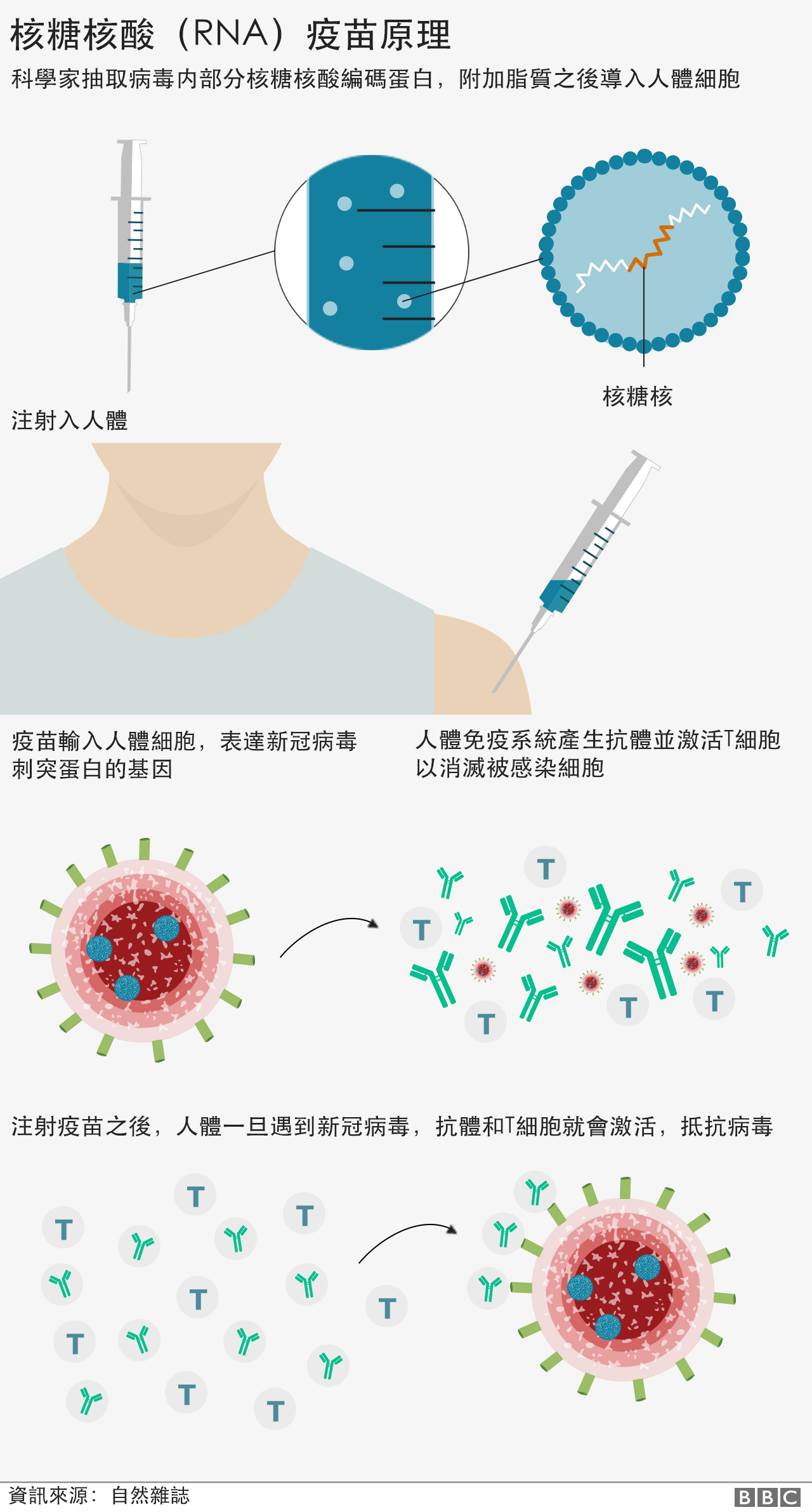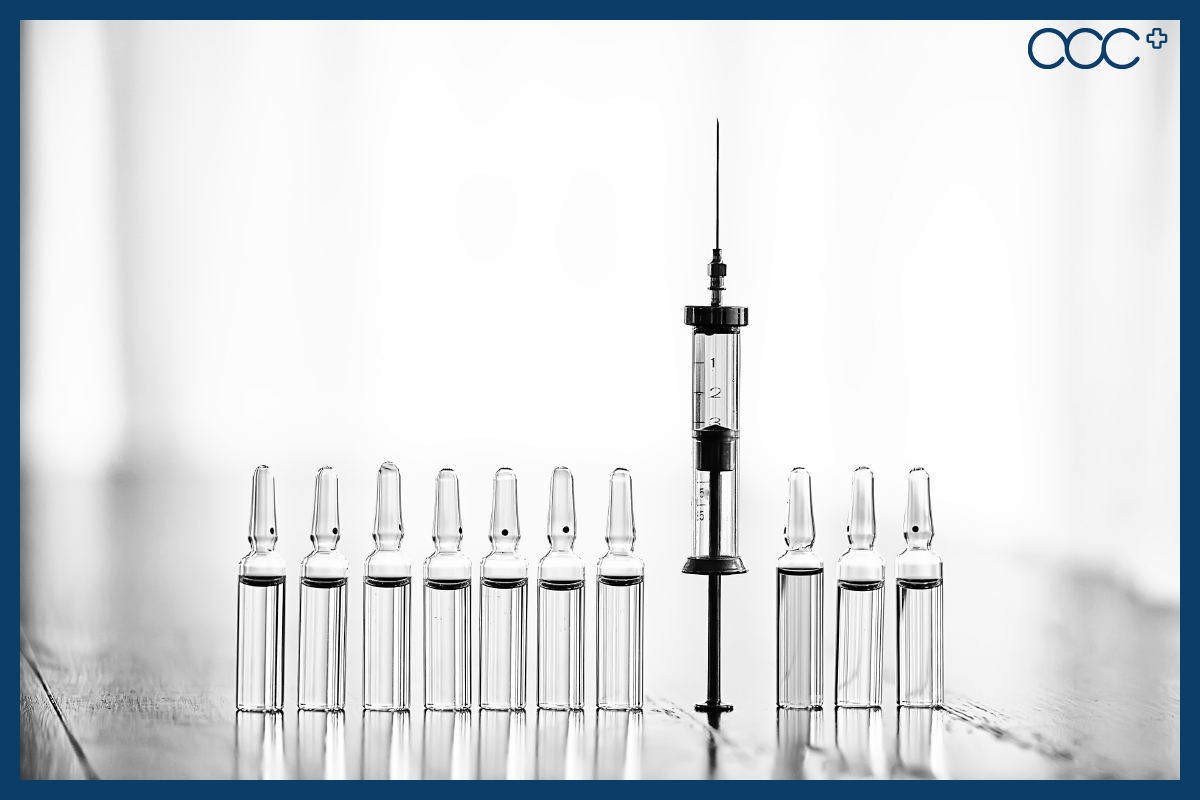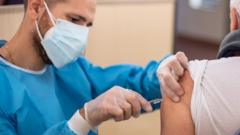With the vaccine, can everyone really go back to the old life?
At first, the editor thought that everyone would be able to return to their previous lives soon after the vaccine was available, but after reading the following content from the BBC, I realized that we may not be able to officially let go of our hearts until the end of 2021.
image copyright GETTY IMAGES
Preliminary data show that the new crown vaccine developed by the US-based multinational pharmaceutical company Pfizer and the German pharmaceutical company BioNTech is as high as 90% effective.
The companies described it as "a good day for humanity and science".
It is reported that the vaccine has been tested in 43,500 cases in six countries, and no safety problems have been found. The companies expect to have an expedited application for official pharmaceutical approval by the end of November.
Experts pointed out that this is the fastest vaccine in human history from zero design to successful development.
The analysis pointed out that although the mass market still faces some challenges, the emergence of this vaccine at least gives people hope that all parts of the world will return to normal next spring.
Sir John Bell, a professor of medicine at the University of Oxford in the United Kingdom, said that he is confident that the new vaccine will be available and help society resume normal operations.
Here are the answers the BBC has found to the six most frequently asked questions.
How exactly do new vaccines work?
A COVID-19 vaccine, along with improved treatments, is widely seen as the only way that people around the world can finally return to pre-pandemic normalcy.
Experimental results of this new vaccine in six countries including the United States, Brazil, Germany, Argentina, South Africa and Turkey show that 90% of people can obtain immunity to the new coronavirus after receiving two injections within seven days.
Dr Albert Bourla, chairman of Pfizer, said that the advent of the new vaccine is "a much-needed breakthrough" in human efforts to end the global epidemic crisis.
Prof Ugur Sahin, one of the founders of BioNTech, described the vaccine as a "milestone".
When will the vaccine be available?
According to reports, before the end of 2020, only a very limited number of people in the world may receive vaccines.
The two pharmaceutical companies expect that by the end of November, they may submit enough data to the government's health and drug regulatory agency for approval. Mass production and marketing are impossible without government approval.
Pharmaceutical companies predict that once licensed, about 50 million doses of vaccines will be produced and supplied worldwide by the end of 2020, and about 1.3 billion vaccines will be supplied by the end of 2021.
It is reported that the UK is likely to obtain about 10 million units before the end of 2020, and the UK has already ordered 30 million units in advance.
COVID-19: A group of volunteers venture to help speed up the development of a vaccine
Who has priority injection?
Since not everyone will have immediate access to a vaccine, many will want to know how vaccine availability will be prioritized.
According to the UK government, healthcare workers will have absolute priority in getting the vaccine, followed by those most at risk of contracting a life-threatening viral disease, such as the elderly and people with certain medical conditions.
The United Kingdom is likely to list the elderly and staff in nursing homes as priority targets for vaccine allocation after medical staff.
Those under 50 who are in good health will be last in the priority queue.
Are there any potential problems?
There are still questions that require more data and answers. For example, it is not known whether people who have been vaccinated will no longer transmit the virus, and whether the original high-risk groups can be equally effective. And how long does immunity last?
It may take several months for these issues to become clear.
In addition to the problem of vaccine distribution, mass production and global supply will also be a huge logistical problem, because the vaccine must be kept at a low temperature of minus 80 degrees Celsius before injection.
What is the principle of the new vaccine?

There are about a dozen different types of COVID-19 vaccines around the world currently in the final stages of trials, known as Phase 3 trials, and this one is the first to show high efficacy.
This is a completely experimental therapy: scientists extract part of the ribonucleic acid-encoded protein inside the virus, add lipids, and introduce it into human cells; the vaccine is injected into human cells, expressing the gene of the new coronavirus spike protein; the human immune system immediately produces antibodies and activates T cells. cells to destroy infected cells.
What is the reaction from all walks of life?
The government's chief medical adviser, Prof Chris Whitty, said the new vaccine demonstrated "the power of science" and gave people "a reason to be optimistic" again in 2021.
Ending Twitter Post, 1
U.S. President-elect Joe Biden called it "great news."
But Biden added: "It's also important that people don't forget that the fight against COVID-19 may be months away."
A spokesman for the British Prime Minister's Office called the above results "optimistic" and said that the British National Medical System will always be ready to give priority to immunization for high-risk groups.
Oxford University professor Holby (Prof Peter Horby) humorously said that he was overjoyed at the news and "grinned."
In general, I hope that everyone can remove their masks as soon as possible, but before that day, everyone must remain vigilant, don't relax, and fight the epidemic together in good health!


